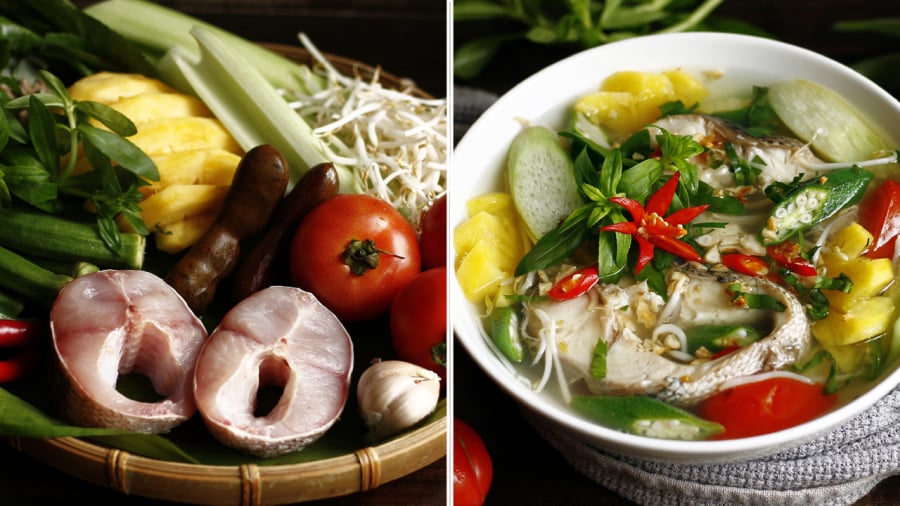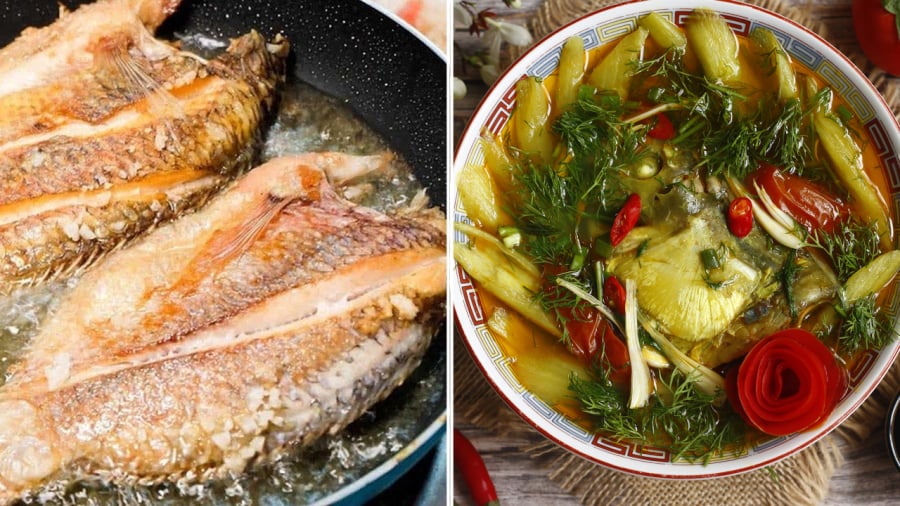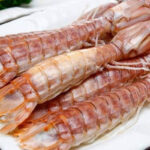To Fry or Not to Fry Fish Before Making Soup: A Culinary Dilemma
Fish is a highly nutritious food, but its pungent odor can be off-putting. Proper preparation and cooking techniques are essential to making fish palatable.
The distinctive fishy odor is attributed to trimethylamine, an amine compound. Fresh fish has low levels of this compound, hence the mild odor. However, as fish ages, the amount of trimethylamine increases, resulting in a stronger fishy smell.

There are diverse methods for cooking fish soup. Some prefer to fry the fish beforehand, while others opt for using fresh fish directly in the broth.
In coastal regions, a unique style of cooking fish soup, known as “thuyen chai,” is practiced. Freshly caught fish are cleaned and immediately placed in boiling water, with spices added to taste. This method yields a clear soup with tender, naturally sweet fish. Similarly, the Southern sour fish soup, made with catfish, typically uses fresh fish that is cooked directly in the broth without frying.
In contrast, when preparing soups with carp, grass carp, or rohu fish in Northern regions, many opt to fry the fish before adding it to the soup. While this technique reduces the fishy odor and firms up the texture, it also makes the soup oilier. To counteract the greasy mouthfeel, sour ingredients such as tomatoes, sour vegetables, tamarind, or vinegar are often added.
Ultimately, the decision to fry or not to fry the fish depends on personal preference. Frying imparts a firmer texture and reduces the fishy odor, but it also increases the oil content of the soup.
The Importance of Hot Water in Fish Soup

Regardless of whether you choose to fry the fish or not, hot water is essential when making fish soup.
A crucial aspect of cooking fish soup is the use of hot water. By adding fish to hot water, the skin cooks quickly, causing the meat to contract and retain its sweet juices. This also prevents amino acids from dissolving into the water, reducing the fishy odor.
During the cooking process, it is advisable to leave the pot uncovered to allow the volatile amino compounds responsible for the fishy odor to evaporate.
If you need to add water to the soup, always use hot water. Introducing cold water can cause the fish to become pungent.
The Role of Spices and Herbs
Spices and herbs are indispensable companions to fish soup. In addition to common seasonings like salt, MSG, and fish sauce, ingredients such as turmeric, tomatoes, tamarind, fermented rice wine, and “me” (a type of fermented soybean product) are essential. Fresh herbs like scallions, Vietnamese coriander, and dill also play a vital role in enhancing the flavor and mitigating the fishy odor. For those who enjoy spicy food, adding black pepper and fresh chili peppers can provide an extra kick.






































